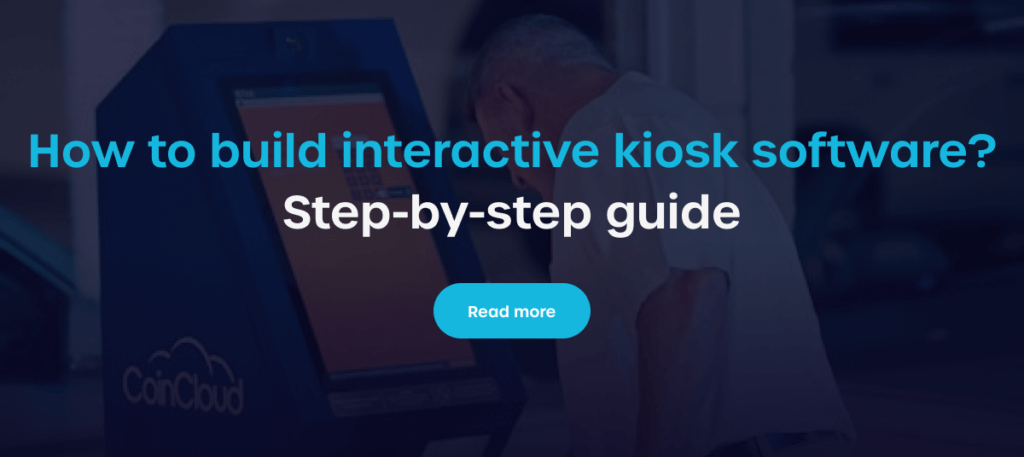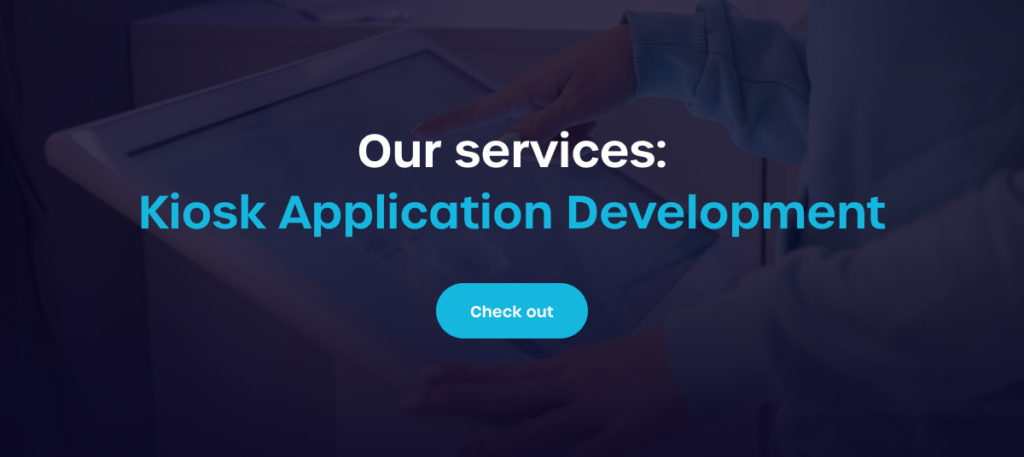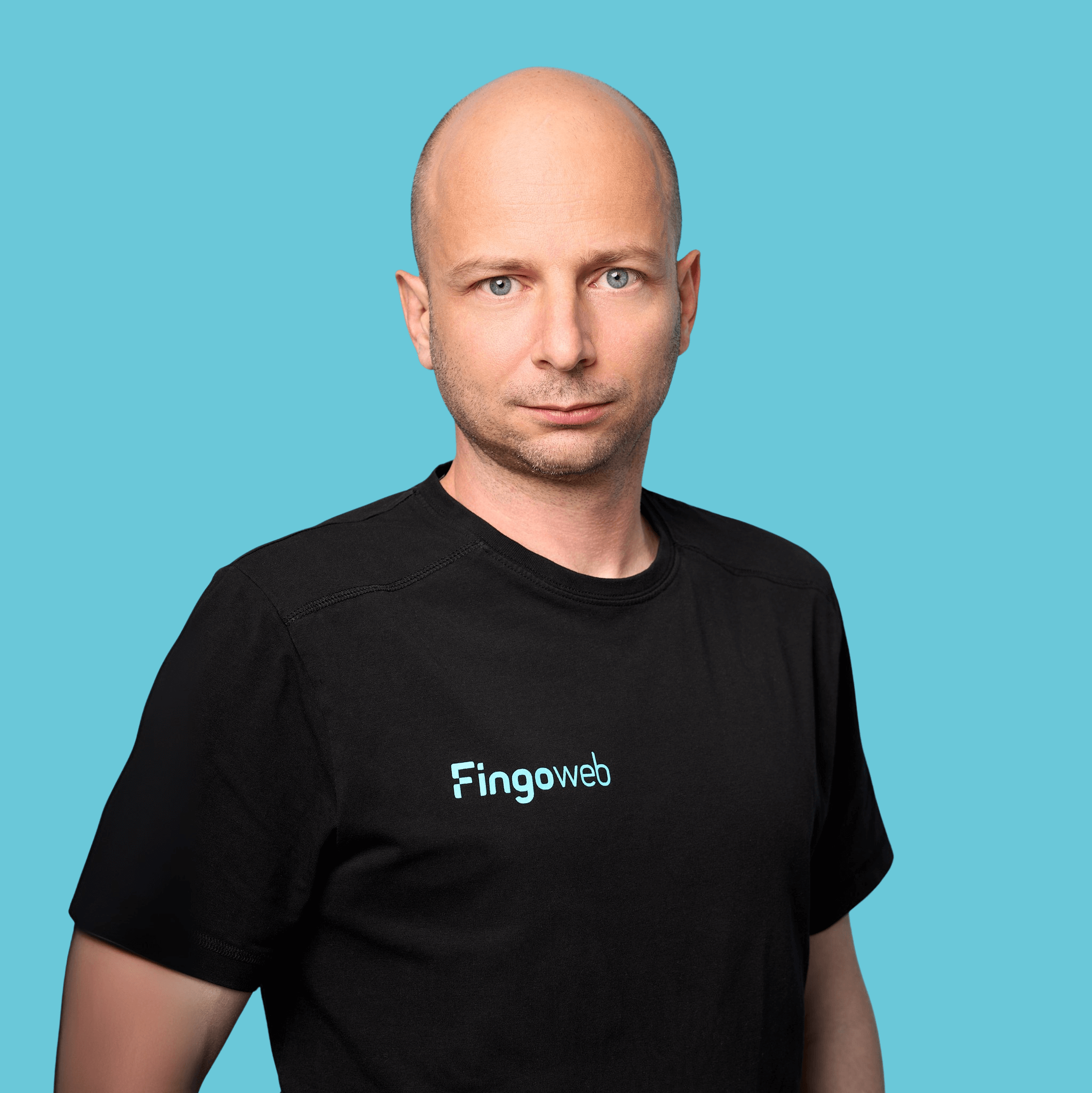Self-service kiosks are becoming increasingly popular – you can find them in shopping malls, museums, restaurants, and service points. Their functionality relies on carefully designed applications that must be intuitive, secure, and tailored to user needs. That’s why choosing the right technology partner is crucial for the success of any project. In this article, we present a ranking of the top 5 companies in Poland specializing in kiosk software development. Discover which software houses stand out for their experience, innovation, and quality of delivery to help you make the right choice when selecting a partner.
How did we choose the best companies?
The selection of the best software houses specializing in self-service kiosk applications in Poland was based on several factors, including experience in different types of projects — with a strong focus on kiosk solutions — as well as the technologies they use. Our goal was to highlight providers that deliver high-quality results in the field of kiosk software development and wayfinding systems.
Experience in kiosk and interactive projects
To evaluate the expertise of each company, we analyzed numerous implementations related to self-service kiosks and other interactive solutions. Practical experience in this niche but demanding industry allows developers to better understand user needs and create applications that are not only functional but also intuitive and easy to use.
Why is experience in kiosk projects so important?
- Hardware limitations – kiosks rely on touchscreens instead of a keyboard or mouse, which requires a carefully designed interface.
- Public use – kiosk applications must be simple, fast, and error-free, as users won’t waste time reading instructions.
- Data and transaction security – many kiosks handle payments or personal forms, meaning every flaw can expose users and operators to risks.
- Accessibility – applications need to be intuitive for people of different ages, often with limited technological skills.
Common mistakes in self-service kiosk applications
- Overly complicated interfaces that frustrate users
- No offline mode or poor handling of internet connection loss
- Unclear typography and touch elements that are too small
- Insufficient testing in real-life conditions (e.g., under strong sunlight)
- Neglecting serviceability and easy system updates
Companies with a strong portfolio in kiosk software development are able to avoid these pitfalls and apply best practices from the start, resulting in higher-quality applications.
Technologies used in kiosk software development
Technologies play a crucial role in determining whether self-service kiosk applications are fast, intuitive, and easy to maintain. It is essential for companies to rely on proven solutions tailored to the specific requirements of kiosk devices.
Most commonly used technologies:
- Frontend: React, JavaScript – smooth and user-friendly touch interfaces
- Backend: Node.js, PHP/Laravel – stable communication with databases
- Integrations: payment systems, CMS, external APIs
- Additional features: voice recognition, multi-language support, offline mode
The right technology stack directly impacts the stability of kiosks, the ease of integration with existing systems, and the overall user experience. By choosing a software house experienced in kiosk software development, businesses can ensure their applications remain reliable, scalable, and future-proof.
Why choose a software house instead of an “all-in-one” provider?
Selecting a software house for developing self-service kiosk applications offers greater flexibility and customization compared to companies that deliver both hardware and ready-made software. “All-in-one” providers often supply universal solutions that are harder to modify and less adaptable for future growth.
A software house focuses exclusively on the programming layer, ensuring that the kiosk application is fully tailored to business needs. This includes unique design, seamless integration with existing systems, and features that meet specific client requirements. Such an approach gives businesses full control over the project, easy scalability, and the confidence that their self-service kiosks will grow alongside their operations.
By partnering with experts in kiosk software development, companies can achieve a higher level of innovation and long-term reliability than with off-the-shelf solutions.

Ranking of software houses in Poland specializing in kiosk software development
Here is our ranking of the top five companies in Poland that specialize in creating applications for self-service kiosks. The list is based on their experience, technology stack, and completed projects in the field of information kiosks and wayfinding solutions.
1. Fingoweb
Fingoweb is a well-established Polish software house specializing in self-service kiosk applications and interactive solutions. For years, the company has been using modern technologies — including React, Node.js, and CMS integrations — to deliver intuitive, secure, and user-oriented applications.
One of Fingoweb’s key projects was the Wayfinder system developed for IMS Sensory Media – a navigation solution used in shopping malls across Poland. The application runs on self-service kiosks, enabling visitors to quickly find stores, service points, or restaurants. Thanks to integration with databases and interactive 3D maps, users can easily plan their route to a chosen location within the mall.
Such projects demonstrate Fingoweb’s ability to combine ease of use with advanced technology. Their applications stand out for their design, clarity, and refined UX. This makes Fingoweb recognized as a leader in kiosk software development in Poland.
2. 3e Software House
3e Software House, based in Gliwice, is a Polish software development company with experience in various custom applications. The firm became recognizable in the kiosk field thanks to projects for international fast-food chains, including self-service ordering kiosks for KFC and Burger King.
These projects involved not only application development but also integration with POS systems and payment solutions. Their role focused on ensuring smooth ordering processes and reliable transaction handling. Beyond kiosk-related work, 3e develops web and enterprise software for different industries. While not exclusively a kiosk software provider, its portfolio includes practical cases of self-service kiosk applications.
3. Netguru
Netguru is one of the largest and best-known software houses in Poland, employing hundreds of specialists in web and mobile development. The company provides end-to-end services, from product design and UX/UI to full software delivery and digital transformation consulting.
However, Netguru’s expertise is broad, spanning fintech, healthcare, and mobility, rather than focusing specifically on kiosks. The firm has the resources to deliver interactive solutions, but kiosk software development is not a dedicated specialization. For businesses looking strictly for kiosk-related experience, this may be an important factor to consider.
4. STX Next
STX Next, headquartered in Poznań, positions itself as Europe’s largest Python-focused software house. The company mainly provides dedicated development teams for complex, long-term projects. Its client base includes enterprises from industries such as finance, logistics, and technology.
While STX Next delivers tailored solutions for large-scale systems, it does not present a portfolio centered around kiosks or interactive devices. Its strength lies in backend-heavy projects and enterprise platforms. As such, although capable of developing kiosk applications, kiosk software development is not part of its core expertise.
5. Software interactive
Software Interactive is a Polish software house that provides a wide range of solutions, including embedded systems, cloud applications, and multimedia kiosks. The company’s technological stack covers .NET, C/C++, Qt/QML, Python, and modern frontend frameworks such as Angular and React.
Unlike many broad-service providers, Software Interactive has direct experience in developing multimedia kiosk software. This makes it a suitable partner for businesses searching for a development company with proven expertise in interactive kiosk applications.

FAQ – Kiosk software development companies
How much does kiosk software development cost in Poland?
The cost of developing a self-service kiosk application in Poland depends on many factors, such as project complexity, required features, and delivery time. Since each project is unique, prices can vary significantly depending on the chosen provider and the technologies used. In general, costs may range from a few thousand to several tens of thousands of euros. It is important to discuss requirements in detail with the selected company to receive an accurate estimate.
How long does it take to complete a self-service kiosk project?
The timeline for developing a self-service kiosk application depends on several key factors:
- Project complexity – simple applications can be built within a few weeks, while more advanced solutions may require several months of work.
- Scope of features and integrations – the more modules and external system connections involved, the longer the development process.
- Efficient collaboration with the client – quick decision-making and clear requirements can significantly shorten the schedule.
In summary, creating a self-service kiosk application with a professional partner experienced in kiosk software development usually takes anywhere from a few weeks to several months, depending on the scope and level of customization.
Do companies in Poland provide kiosk software development for international markets?
Yes, many Polish companies have experience in developing self-service kiosk applications tailored for international markets. By understanding global standards as well as local requirements, they are able to effectively deliver solutions for diverse audiences.
Specialized teams often work on projects that can be applied across different countries, offering a wide range of possibilities. Clients seeking innovation can successfully collaborate with Polish firms to expand their presence in international markets through professional kiosk software development.
What technologies are most commonly used in kiosk software development?
In self-service kiosk applications, such as information kiosks or wayfinding systems, frontend technologies like React and JavaScript are used to ensure smooth touch interfaces, while backend solutions such as Node.js or PHP/Laravel handle stable communication with databases. Integrations with payment systems, CMS platforms, or external APIs are also frequently implemented. Additional features may include multi-language support, voice recognition, or offline mode.








